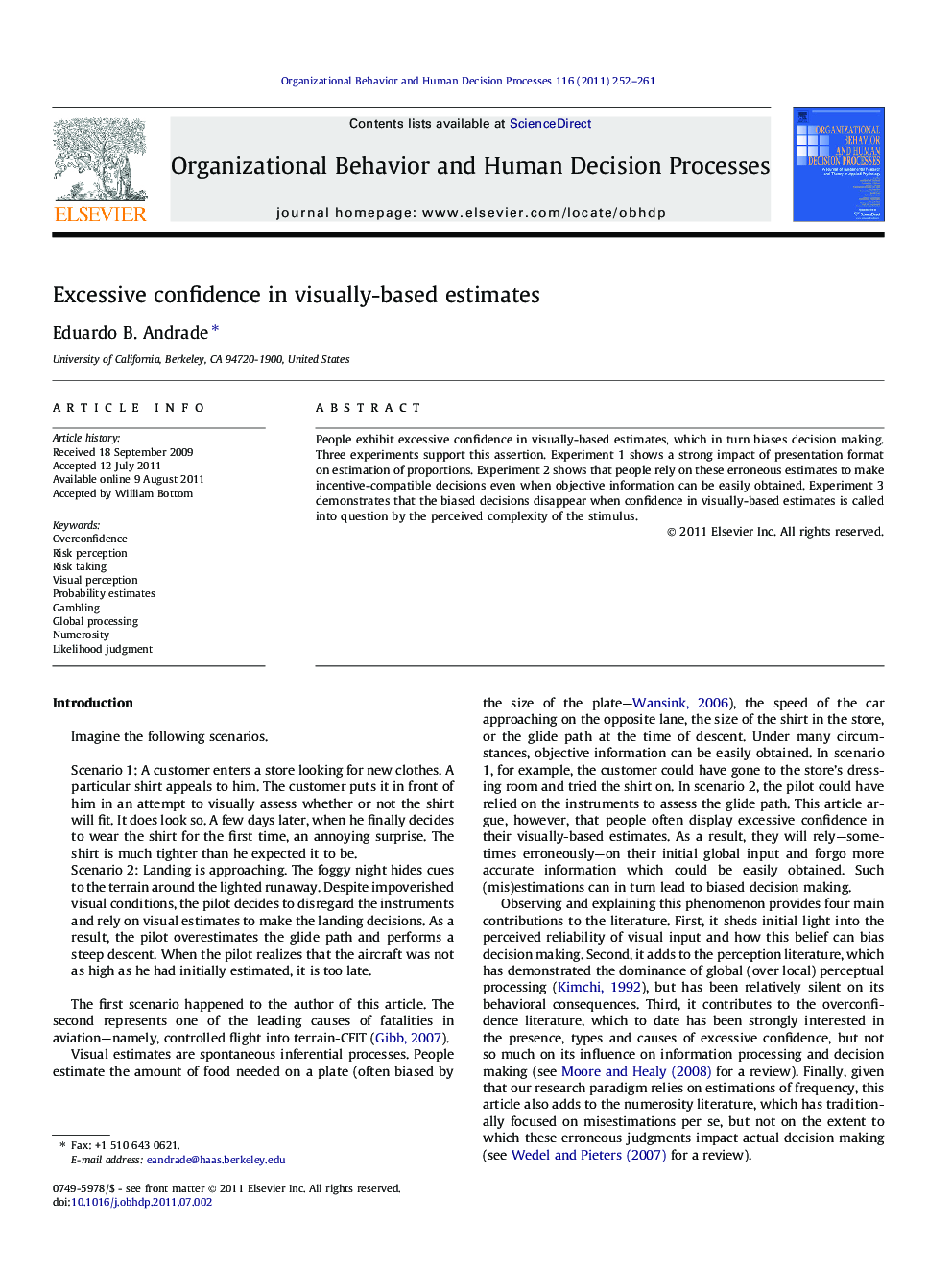| Article ID | Journal | Published Year | Pages | File Type |
|---|---|---|---|---|
| 888767 | Organizational Behavior and Human Decision Processes | 2011 | 10 Pages |
People exhibit excessive confidence in visually-based estimates, which in turn biases decision making. Three experiments support this assertion. Experiment 1 shows a strong impact of presentation format on estimation of proportions. Experiment 2 shows that people rely on these erroneous estimates to make incentive-compatible decisions even when objective information can be easily obtained. Experiment 3 demonstrates that the biased decisions disappear when confidence in visually-based estimates is called into question by the perceived complexity of the stimulus.
► Global processing leads to biased estimations of frequency. ► Misestimations influence decisions even when objective information is available. ► Excessive confidence in visually-based estimates helps explain this phenomenon. ► The perceived complexity of the stimulus can reduce overconfidence.
